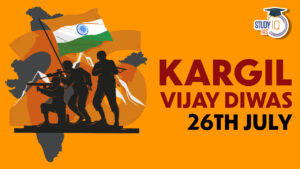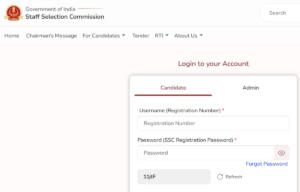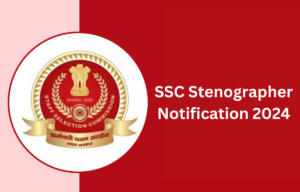Daily Current Affairs for UPSC 2023
Q) Recently seen in news the term ‘Agrocrete’ is best related to:
- Carbon-negative building brick.
- Portal to track use of Fly Ash.
- Fertilizer for Bt crop.
- Union Government initiative to increase rice cultivation.
Daily Current Affairs for UPSC – 13 March 2023
Explanation:
- Option (1) is correct: Recently, a Visakhapatnam-based construction firm has manufactured a carbon-negative building brick called Agrocrete, from crop residues and industrial by-products. The Agrocrete Blocks are carbon negative, as they are made of crop residues and industrial by-products, and can be molded into various forms and shapes such as blocks, tiles, decorative, plaster etc. Agrocrete can potentially replace conventional bricks and lower the construction cost by up to 50% and operational costs by 30%. On an estimate, with annual production of 900 million cubic meters of Agrocrete, around 100 million tonnes of Carbon Dioxide can be captured to prevent 350 million tonnes of CO2 Such measures by private innovators become essential, to support the Government’s ‘Carbon Emission’ targets and work towards achieving ‘SDG 13’ to mitigate the impacts of Climate Change.
Q) Recently, Elephant Whisperers, which won an Oscar for the Best documentary, depicts the story of Kattunayakan tribe of the Western Ghats. With reference to this, consider the following statements:
- Kattunayakan tribe is mainly found in Border region of Karnataka and Maharashtra.
- Kattunayakan tribe is one of the Particularly Vulnerable Tribal Groups (PVTGs) of India.
- Kattunayakan tribe is matrilineal and trace their descent through female line.
Which of the statements given above is/are correct?
- 2 only
- 2 and 3 only
- 1 and 3 only
- 1, 2 and 3
Explanation:
- Statement 1 is incorrect: Kattunayakan tribe is mainly found in parts of Tamil Nadu and Kerala (Nilgiris and surrounding region). They are also known by different names like Jenu (honey) Kurumbas and Thenu (honey) Kurumbas in different regions because of their expertise in collection of honey. They are designated scheduled tribe in the states of Tamil Nadu, Kerala, Karnataka, and Andhra Pradesh. They get their name from the words ‘kadu’ (forests) and ‘nayakan’ (leader/chief) depicting that they are the lords of the forest. The tribe has traditionally been hunter-gatherers. They are also engaged in other economic activities such as fishing, trapping small birds and animals, and occasional farm labour.
- Statement 2 is correct: Kattunayakan (Kattunayakar), is one of the 75 Particularly Vulnerable Tribal Groups (PVTGs) of India. They speak the Kattunayakan language which is also called as nama basha (our language) by them. It is basically of the South Dravidian origin. The language contains elements of Kannada, Malayalam and Tamil. The settlements are known as padi and a single hut in a settlement is called manai.
- Statement 3 is incorrect: Kattunayakans are patrilineal and trace their descent through male line. Monogamy is generally practiced among the Kattunayakans. They generally believe in Hinduism and their main deity is Lord Shiva and Nayakkar under the name of Bhairava. They also practice animism that includes worship of animals, birds, trees, rock hillocks, and snakes.
Q) Consider the following statements about Mudumalai Tiger Reserve:
- It is located at the tri-junction of Karnataka, Kerala and Tamil Nadu.
- In 2021, it was declared as a Tiger Reserve, under the Wildlife Protection Act of 1972.
- It is a part of Nilgiri Biosphere Reserve.
Which of the statements given above are correct?
- 1 and 2 only
- 2 and 3 only
- 1 and 3 only
- 1,2 and 3
Explanation:
- Statement 1 is correct: Mudumalai Tiger Reserve is located in the Nilgiris District of Tamil Nadu state spread over 321 sq.km. at the tri-junction of three states, viz, Karnataka, Kerala and Tamil Nadu. The Reserve has tall grasses, commonly referred to as “Elephant Grass”, Bamboo of the giant variety, valuable timber species like Teak, Rosewood, etc. There are several species of endemic flora. Such a varied habitat is inhabited by a variety of animals which include Tiger, Elephant, Indian Gaur, Panther, Sambar, Spotted Deer, Barking Deer, Mouse Deer, Common Langur, Malabar Giant Squirrel, Wild Dog, Mangoose, Jungle Cat, Hyena, among others.
- Statement 2 incorrect: In 2007, it was declared as a Tiger Reserve, under the Wildlife Protection Act of 1972, to conserve the country’s dwindling Tiger populations. Indian Documentary, ‘The Elephant Whisperers’, which is a story of young, orphaned elephant in Mudumalai Tiger Reserve, has won an Oscar award.
- Statement 3 is correct: It is a part of Nilgiri Biosphere Reserve (1st Biosphere Reserve in India) along with Wayanad Wildlife Sanctuary (Kerala) in the West, Bandipur National Park (Karnataka) in the North, Mukurthi National Park and Silent Valley in the South.
Q) Consider the following statements:
- The Least Developed Countries (LDCs) are developing countries listed by the World Bank that exhibit the lowest indicators of socioeconomic development.
- Gross National Income (GNI) per capita is one of the three criteria used to classify a country as LDC.
- Currently, Highest number of LDCs are in Asia.
Which of the statements given above are not correct?
- 1 and 2 only
- 2 and 3 only
- 1 and 3 only
- 1, 2 and 3
Explanation:
- Statement 1 is incorrect: On December 13, 2023, Bhutan is set to become the seventh nation to graduate from the United Nations’ (UN) list of Least Developed Countries (LDC). The LDCs are developing countries listed by the UN that exhibit the lowest indicators of socioeconomic development. The concept first originated in the late 1960s and was codified under UN resolution 2768 passed in November 1971.
- Statement 2 is correct: The UN identifies three criteria for a country to be classified as an LDC:
- Gross National Income (GNI) per capita: The country must have a GNI per capita below the threshold of USD 1,230 over a three-year average.
- Human Assets Index (HAI): The country must perform poorly on a composite human assets index based on indicators including nutrition, health and education.
- Economic Vulnerability Index (EVI): The country must demonstrate economic vulnerability such as being prone to natural disasters and possessing structural economic constraints.
- Statement 3 is incorrect: To be considered for graduation from LDC status, a country must meet certain criteria for at least two consecutive triennial reviews conducted by the United Nations. Currently, the UN lists 46 countries that qualify as LDCs. Of those, 33 are from Africa, nine from Asia, three from the Pacific and one from the Caribbean.
Q) Consider the following statements:
- Index of Industrial Production is an indicator that measures the changes in the volume of production of industrial products during a given period.
- Index of Industrial Production is compiled and published monthly by the Central Statistical Organization (CSO).
Which of the statements given above is/are correct?
- 1 only
- 2 only
- Both 1 and 2
- Neither 1 nor 2
Explanation:
- Both statements are correct: India’s Index of Industrial Production (IIP) increased by 5.2% in January 2023, after two months of contraction. Rise in IIP is almost twice the 2.6% growth averaged in the previous quarter, and a 4.7% improvement from December 2022. Industry is pointing to a slower rebound in lower-income and rural segments, despite the official denial of a K-shaped recovery. IIP is an indicator that measures the changes in the volume of production of industrial products during a given period. It is compiled and published monthly by the Central Statistical Organization (CSO), Ministry of Statistics and Programme Implementation. Base Year for IIP is 2011-2012.


 Kargil Vijay Diwas 2024, Date, History a...
Kargil Vijay Diwas 2024, Date, History a...
 SSC CGL Apply Online 2024, Last Date is ...
SSC CGL Apply Online 2024, Last Date is ...
 SSC Stenographer 2024 Notification Out a...
SSC Stenographer 2024 Notification Out a...

















